In Review: 'Caught Stealing,' 'The Roses'
Austin Butler fights for his life while Benedict Cumberbatch and Olivia Colman fight each other in this week's new releases.
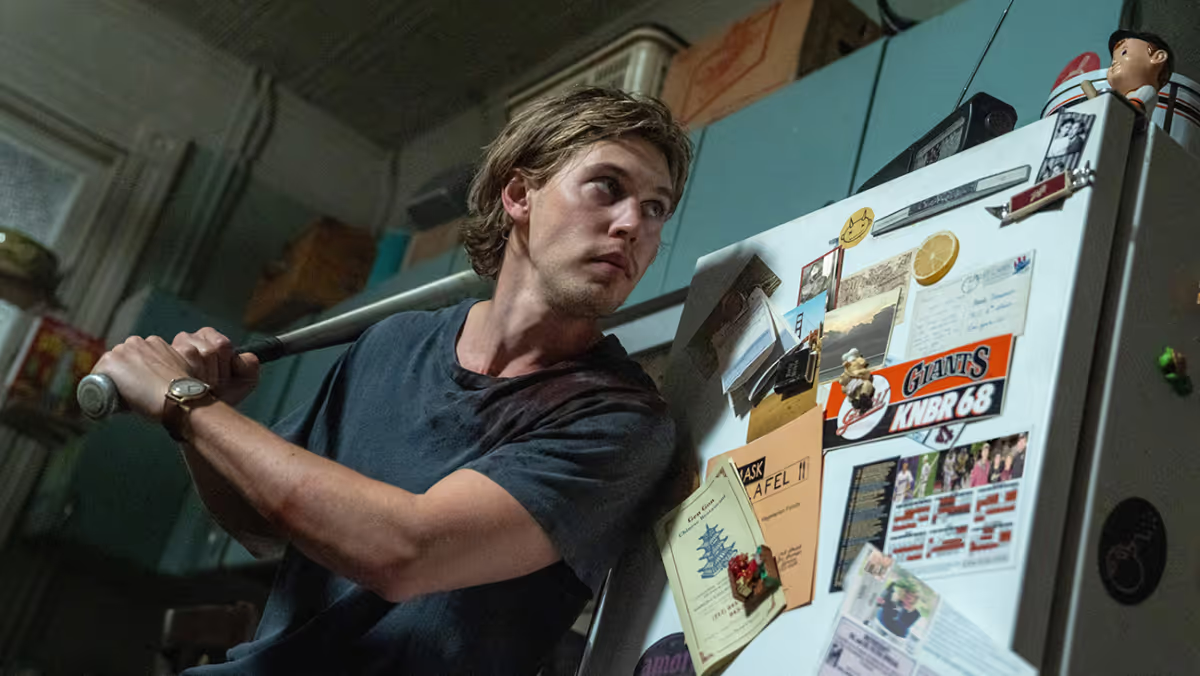
Caught Stealing
Dir. Darren Aronofsky
107 min.
When Martin Scorsese made After Hours in 1985, he was at a crossroads in his career, having directed three straight studio films after Taxi Driver that were not successful, despite the acclaim that greeted 1980’s Raging Bull and that would only later catch up to 1982’s The King of Comedy. After Hours, a fleet comedy based on a student thesis script by Joe Minion, was his successful attempt to shake off the cobwebs, assert his independence, and regain a little of his lost confidence. There’s no question that Darren Aronofsky had After Hours in mind when he decided to make Caught Stealing, his own fast, colorful, semi-surreal trip through various New York City subcultures. Aronofsky’s last two features, the almost heroically off-putting Jennifer Lawrence vehicle Mother! and the hermetic Brendan Fraser drama The Whale, must have felt like an albatross, too, even though he’s temperamentally inclined to haul one around at all times.
The Reveal is a reader-supported newsletter dedicated to bringing you great essays, reviews and conversation about movies. While both free and paid subscriptions are available, please consider a paid subscription to support our long-term sustainability.
As a hat-tip to Scorsese, Aronofsky casts the lead of After Hours, Griffin Dunne, in a bit part as a grizzled dive-bar owner, but puts his own unlucky hero through the sort of physical crucible that’s beset the leads in nearly all his previous films. By the time we meet Hank Thompson (Austin Butler) in 1998 New York, life has already left him battered and bruised. Once a high draft pick for the San Francisco Giants, Hank had his major league dreams cut short by a car accident and is now a likable himbo tending bar on the Lower East Side. After agreeing to cat-sit for his punk neighbor (Matt Smith), who’s skipping town abruptly, Hank winds up taking the heat for a pile of missing drug money, despite having no knowledge of his neighbor’s whereabouts, let alone any involvement in the business. His sole ally is his on-again/off-again girlfriend Yvonne (Zoë Kravitz), a paramedic who swings by for the occasional booty call.
Working from a script by Charlie Huston, who’s adapting his own novel, Aronofsky gives Hank’s tormentors the cartoonish quality of the tribal gangs in The Warriors, with skinhead Russian mobsters and Hasidic killers both in hot pursuit. Butler makes for an likable sap, but Aronofsky and Huston seem committed to limiting him to dumb-jock amiability, which steps on a lot of jokes that a put-upon straight man like, say, Dunne in After Hours, might have landed. The relative modesty of Caught Stealing, especially from a more typically high-minded director like Aronofsky, is refreshing to a point, but the film isn’t as fleet as it needs to be. Though the action is adrenalized much of the time, Aronofsky keeps circling back to Hank’s car accident as a sin that must be answered by punishment and redemption, and the repetition is a weight that neither Hank nor the audience can handle without buckling at the knees. Aronofsky only allows himself to have fun to a point and his stinginess wears you down in the long haul. — Scott Tobias
Caught Stealing will run off your hard-earned dollars tonight.

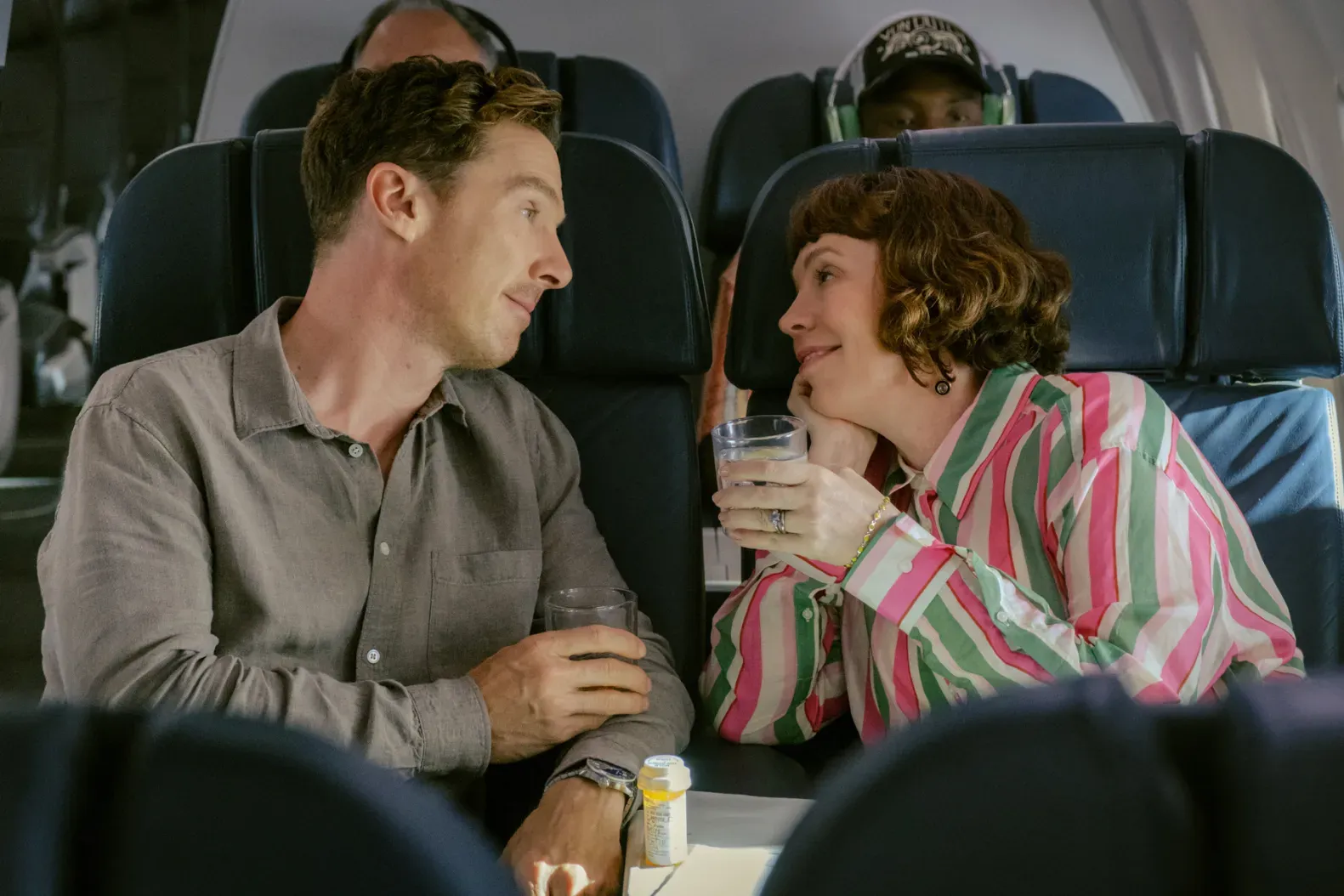
The Roses
Dir. Jay Roach
105 min.
Less a black comedy than a light gray one—think a pencil mark that’s had an eraser rubbed over it a few times—this second adaptation of Warren Adler’s 1982 novel The War of the Roses stars Benedict Cumberbatch and and Olivia Colman as, respectively, Theo and Ivy Rose, a long-married couple going through an extended rough patch. Except it’s not that rough, not really. And though they profess to hate each other, it’s pretty obvious they don’t really hate each other, the film finds ways to assure moviegoers. The film-opening counseling session ends in insults and giggles. It’s okay: Theo and Ivy clearly belong together, no matter how nasty they might get. Birthday party bingo games rarely set their stakes so low. This, of course, wouldn’t matter if The Roses was uproariously funny or even contained one truly memorable scene.
Alas, it does not. What charm the Jay Roach-directed film has comes from Colman and Cumberbatch’s winning performances, particularly in scenes that allow them to deliver dry, withering insults, reminders that Tony McNamara (The Favourite, Poor Things) provided the screenplay. The two have chemistry but they’re stuck in a film with nothing pushing it forward, not even the dissolution of the Roses’ marriage, which seems merely troubled for most of the film’s running time. Their union only truly feels like it’s falling apart in the physical comedy-heavy climax that hearkens back to Danny DeVito’s first adaptation of the novel, 1990’s The War of the Roses. But the well-timed gags that DeVito made a trademark of his early comedies weren’t really Roach’s forte. Before he swerved away to make political films for the past decade or so, Roach specialized in oversized sketch comedies (the Austin Powers films) and genial amusements (Meet the Parents, etc.). Maybe that’s why even this stretch plays like a slightly embittered installment in the Fockers series.
A different approach might have mined the film’s central conflict for satire. Theo’s a gifted but frustrated architect. Ivy’s a gifted but frustrated chef. They meet-cute in London and head to California where Ivy’s ambitions take a backseat to raising their kids while Theo works on an ambitious maritime museum shaped like a ship. (Shades of the Milwaukee Art Museum.) But when a freak storm destroys Theo’s creation and sidelines him professionally, those positions swap and Ivy throws herself into her side project, a seafood restaurant called We’ve Got Crabs! When that takes off, so does a cycle of professional resentment akin to A Star is Born as Theo attempts to reclaim his career and, it’s implied, his manhood while Ivy finds herself alienated from the kids. But the film doesn’t really seem interested in what any of this means, just in using the Roses’ predicament to move from one sometimes mildly amusing scene to the next. Drop-in appearances from Andy Samberg, Kate McKinnon, and others feel almost like attempts to infuse the verbal sparring with a broader, American comic sensibility. It doesn’t really work. Instead they feel just like more elements that never click into place in a film about dysfunction that’s far too dysfunctional itself. —Keith Phipps
The Roses opens in theaters everywhere tonight.


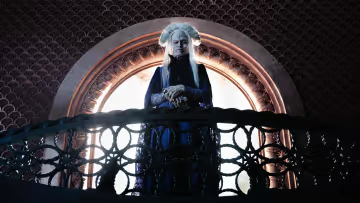
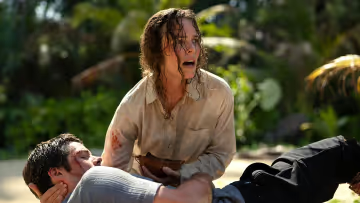
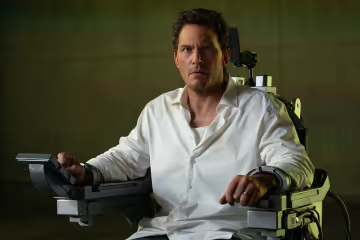
Discussion